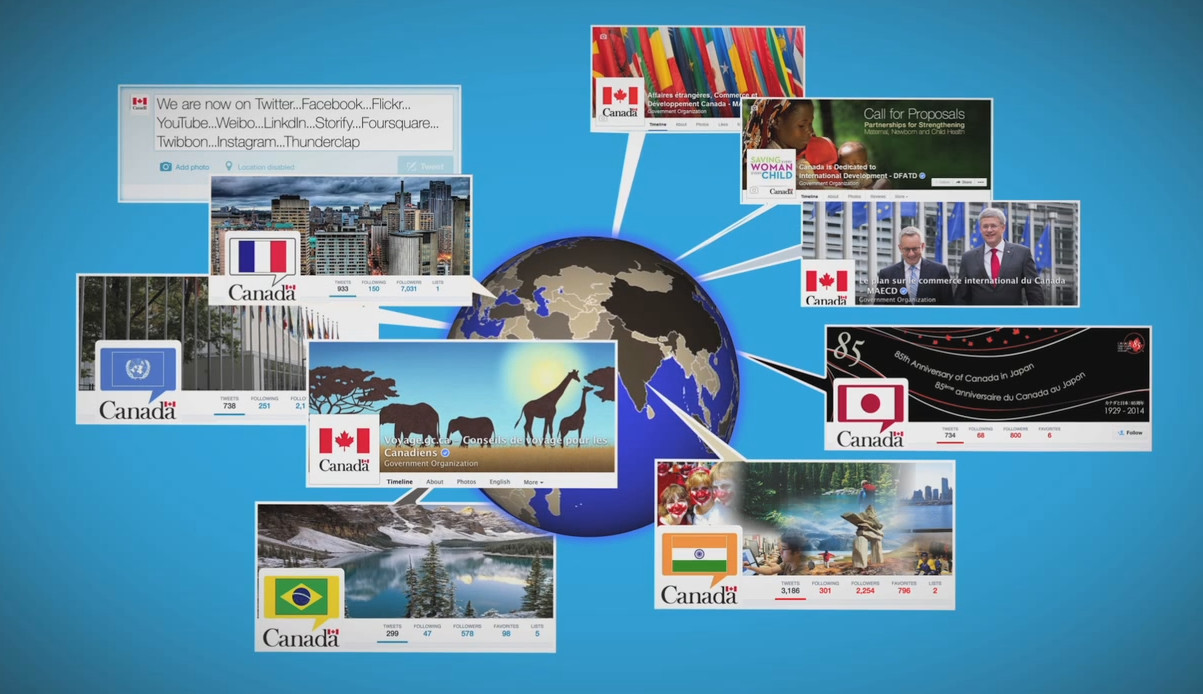But as Canada was cutting its formal diplomatic ties with Iranian officials, a separate team within the Department of Foreign Affairs and International Trade was working with the Munk School of Global Affairs at the University of Toronto to build an online platform where Iranians could discuss their upcoming election. If Canadian diplomats could not speak to Iranian officials, they were going to help Iranians speak to one another.
This week’s announcement of an expanded digital diplomacy initiative based at the Munk School of Global Affairs is being positioned as an expansion of this “public square” initiative. And as an extension of the traditional public diplomacy once practised on TV and radio (think Voice of America, Radio Free Europe and BBC World Service) onto the Internet.
But it is, in fact, a far more assertive act, one of making foreign policy rather than simply communicating it. Such programs are part of a growing attempt by the state to remain relevant in a world of increasingly decentralized power.
Whereas states were once the primary means of incentivizing collective action and asserting power on the international stage, they are now being challenged by a wide range of individuals and groups who are using digital technology to organize, protest, report, aid each other, trade, and at times attack. Whether they be hackers, digital humanitarians, cryptocurrency innovators, activists, citizen reporters, or terrorists, the Internet allows people to take on the institutions that once held a monopoly on power.
Digital diplomacy is therefore part of the state’s attempt to remain relevant and to assert power in the digital space. And while the goals of any one initiative might be lauded (as this one can), we need to view and ultimately assess it as only one component of a wider suite of digital foreign policy actions. Taken as a whole, digital foreign policy is fraught with challenges and hypocrisies.
First, such seemingly innocuous initiatives often backfire. Take, for example, USAID’s elaborate scheme to create a Cuban version of Twitter with the goal of fostering dissent and promoting regime change. While an innovative and audacious use of digital technology to achieve a (however misguided) State Department objective, the revelation of the program tainted the reputation and hurt the effectiveness of USAID as a whole.
Second, the platforms and tools being built through initiatives like the Iran Dialogues, replicate or use the very anonymizing capabilities that our national intelligence agencies are simultaneously seeking to break and undermine. The ability to communicate anonymously empowers perceived nefarious and legitimate actors alike, whether they be terrorist, black market commerce sites, domestic protesters, or dissidents in Iran. Programs seeking to break encryption will ultimately negate any well-intentioned digital diplomacy initiatives.
Third, digital foreign policy is increasingly being outsourced. Governments distance themselves from acts of hacking or cyberwar through the use of arm’s-length organizations. Whether it be the Syrian Electronic Army, the recent North Korea hack, or the U.S. and Canada using think tanks to build digital tools, it is getting increasingly hard to attribute online action and to hold it accountable.
Finally, the same governments that are seeking to enable free speech in countries like Iran are at the same time rapidly expanding the surveillance state. Thanks to the revelations of Edward Snowden we now know how the state has chosen to respond to this new space of digital empowerment. Like a traditional battlefield, they are seeking to control it. To, as they themselves claim, “know it all.”
And herein lies the central tension in the digital diplomacy initiative. By seeking to control, monitor and undermine the actions of perceived negative actors, the state risks breaking the very system that positively empowers so many. And this will ultimately harm those living under autocratic and democratic regimes alike.
The answer, unfortunately, is not as simple as many critics of digital diplomacy assert. Simply returning to traditional in-person diplomacy ignores the global shift to decentralized digital power. Digital diplomacy is a well-intentioned attempt to participate in this new space. However, it is one that is both ill-suited to the capabilities of the state, and is negated by other digital foreign policy programs.
We are at the start of a reconfiguration of power. Navigating this terrain is one of the principal foreign policy challenges of the 21st century.
Taylor Owen is assistant professor of Digital Media and Global Affairs at UBC and the author of Disruptive Power: The Crisis of the State in the Digital Era.
http://www.theglobeandmail.com/globe-debate/the-promise-and-peril-of-digital-diplomacy/article22375462/















